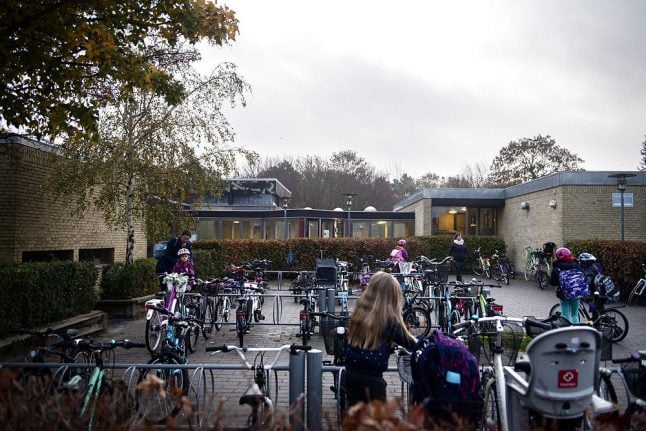Denmark's schoolgoers performed relatively poorly in science subjects compared to kids in other OECD countries in a recent global education ranking.
In the Pisa education ranking, Danish teens ranked higher than the average for OECD countries in mathematics and reading, meanwhile.
Danish education is often seen as an effective and healthy model, in which the well-being of pupils is primary, but recent years have seen changes and reforms implemented, challenging the whole system, as we have reported in the past.
We asked for your experiences with the school system in Denmark, and what advice you would give to foreign residents. Thank you to all who got in touch.
“(My) kids are happy to go there, they learn how to behave, to take care of the environment, and many practical things,” wrote one reader, who gave her name as Aurelia.
Danish schools promote a “free way of thinking” with “happy teachers and students”, she added.
“If you don't know something you can ask for more explanation,” she said.
Comparing to schools in Romania, Aurelia also praised Danish schools for avoiding a focus on “theoretical information that you don't use.”
But she also felt that schools in Denmark could be “more clean and (it should not) be mandatory to bring food for lunch”.
Denmark was also praised by one of our readers for its relatively accessible private schools.
READ ALSO: Why Copenhagen is the cheapest city in Europe for international schools
“The concept of the state letting parents decide to send their child to a different school of their choice that is outside the state system and in return paying 70-80 percent of the fees, is a great one,” said Alan Dunwiddie.
Government subsidization of private schools helps make Denmark the European country with the lowest maximum costs for international private schools, with little variation in prices, lending weight to Dunwiddie's comment.
But education can promote “a very Danish-centric, ‘Denmark is wonderful’ mindset to impressionable young minds”, he also said.
Others praised Danish education for its teaching style.
There is no excessive emphasis on “book knowledge” and good focus on “social effectiveness and creativity”, Kapil Sharma wrote.
Schools are “good at giving feedback if (a) kid is suffering due to an issue”, Sharma added.
Those views were broadly agreed with by another reader, Juan Pablo.
“(Schools) let children be children. (They) pay more attention to social connection, not the academic study. Students are normally very relaxed in the school,” he said.
However, discipline can be lacking in schools, in Juan Pablo’s view.
“Sometimes it is very noisy,” he wrote.
What advice do you have for foreign residents whose children are to attend school in Denmark?
“See what kind of person the headteacher is. Talk with the teachers and try to have a tour before enrol your child. Many schools offer special Danish classes for foreign students”: Juan Pablo.
“Visit many schools and kindergartens if you plan to send your kid to public school. Assess the situation and keep questions ready. Proactively ask about the growth of your kid”: Kapil Sharma.
“Private school is a godsend… It allows you to make the choices and, in my experience, has better quality, more motivated teachers”: Alan Dunwiddie.
READ ALSO: Should Denmark allow fewer young people to graduate upper secondary school?



 Please whitelist us to continue reading.
Please whitelist us to continue reading.
Member comments